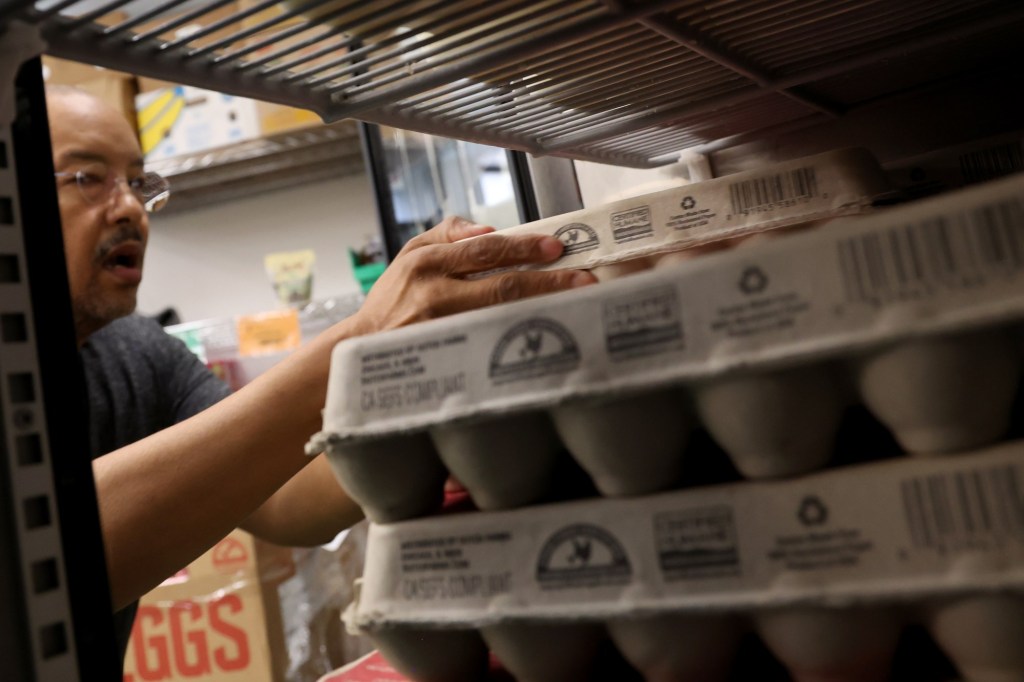Chicago Heights resident Stephanie Petersen was concerned by how many food recalls she saw daily on the Food and Drug Administration website.
“There was, like, (multiple) recalls every single day. And a lot of salmonella, listeria, a lot of different things,” Petersen said. “I was like, what is going on? It’s so many.”
Petersen, an occupational therapy student who posts regularly on social media about health, started creating TikTok videos in August where she updates followers on the latest recalls. She includes information like dates, severity, screenshots from the FDA website and news sources.
“I’m just doing it to help and keep everybody safe,” Petersen said. “All I say is just, you know, stay on top of the recalls.”
Recent food recalls have raised concerns among consumers about food safety and regulation. But experts said the issue is complicated due to factors like increased regulation, better technology and more public awareness.
“There’s no crystal ball that will ever keep us (at) 100% protection just because of the nature of food that we eat and where it’s coming from,” said Brian Schaneberg, executive director of the Institute for Food Safety and Health at Illinois Tech.
Misconceptions about the recall process
The FDA regulates about 78% of the U.S. food supply except for meat, poultry and some fish products, which are overseen by the U.S. Department of Agriculture. Food recalls are issued after companies find problems, consumers report health issues or regulators conduct testing.
According to FDA data, nearly 1,200 food products have been recalled so far in 2024. Two hundred products were recalled in August, the highest monthly total this year. But 2024’s total recalls so far are lower than last year, which saw just over 2,000 recalls, the highest since 2017.
Overall, average annual recalls for the last four years are lower than before the COVID-19 pandemic in 2019. More safety measures led to fewer inspections and less food production post-pandemic, Schaneberg said.
But not every recall is harmful. The FDA classifies recalls from Class III, unlikely to cause health problems, to the most serious Class I, which can lead to death. The majority of August recalls were Class I, but there were only 20 in September. Due to the severity, these recalls usually receive a lot of media attention.
For example, the deli company Boar’s Head recalled about 7 million pounds of meat and poultry products this summer after strains of listeria were found in its products. Ten people have died, according to the Centers for Disease Control, including one death in Illinois.

More recently, the Wisconsin-based company Milo’s Poultry Farms recalled certain eggs sold in Illinois, Michigan and Wisconsin due to salmonella. The CDC says 65 people have gotten sick, with 11 cases in Illinois.
As the most serious type of recall, there are very specific steps when it comes to communication from both the company and the FDA. But it becomes trickier with lower class, voluntary recalls, which is when companies remove products before they’re legally required by regulatory agencies.
“You’ll see that in the language where the company may say, ‘We are choosing to pull this product from the market, even though we do not have data to say it’s unsafe,’” Schaneberg said. This gray area is where the perception of increasing recalls could come from. “Consumers don’t necessarily know the difference and that’s hard.”
An increasing number of food recalls are because products aren’t what was stated on the package, like with undisclosed allergens such as milk or wheat. Allergens accounted for nearly half of recalls in 2023, according to a report from the Public Interest Research Group. Pathogens like salmonella or listeria are behind a quarter of last year’s recalls.
The uptick in allergen-related recalls last year can be attributed to the addition of sesame as a major food allergen. The Food Allergy Safety, Treatment, Education, and Research Act, which went into effect in January 2023, required labeling sesame on all packaged foods regulated by the FDA.
So while there is a potential increase in recalls, it isn’t necessarily because more people are getting sick, Schaneberg said. More recalls may be due to a product not having the right information for consumers to make decisions, like allergens information.
“You’re seeing things hit the media in part now because the U.S. made the decision to improve its food safety practices,” he said.
Improving food systems
Food recalls might also be increasing due to better regulatory standards, said Sara Bratager, a food safety and traceability scientist with the Institute of Food Technologists. In 2011, federal lawmakers passed the Food Safety Modernization Act, which resulted in many of the technological and screening improvements seen in today’s food regulatory system
By 2026, for example, any company that handles products on the Food Traceability List must keep specific records on movement throughout the supply chain. Foods on this list are considered “high risk” for foodborne illness, like some fresh produce, cheese and nut butters. Such records make it easier to trace a product in the event of a recall.

















































